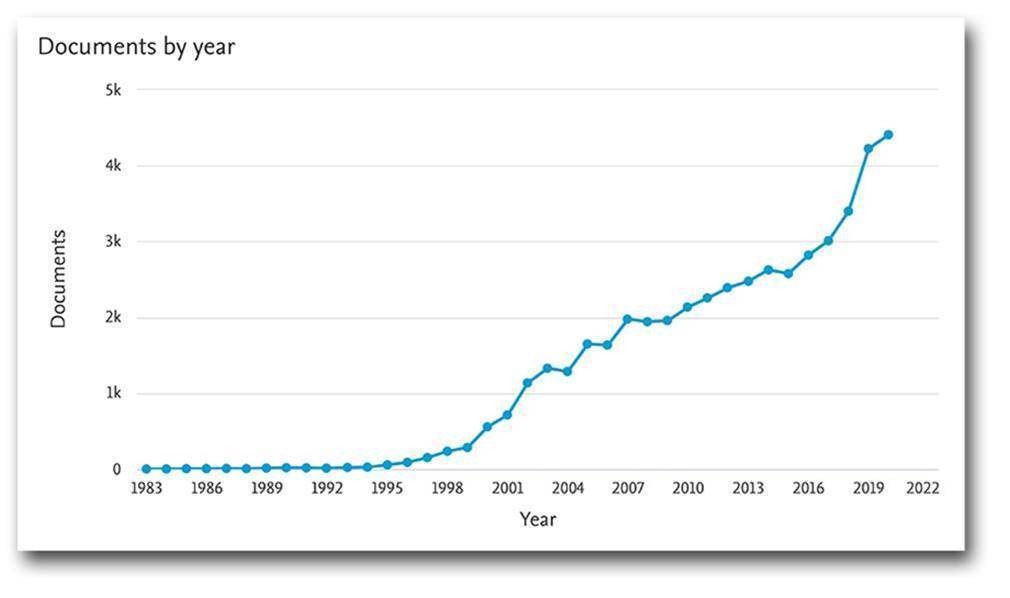Elsevier has published the findings of a new research trends report tracking emerging trends in quantum computing, based on research and analysis conducted in Scopus. Scopus uniquely combines a comprehensive, curated abstract and citation database with enriched data and linked scholarly content. The report discusses how quantum computing has dominated headlines in recent years — from Google’s 53-qubit quantum computer “Sycamore” achieving quantum supremacy, to multibillion-dollar initiatives around the world to develop quantum technology. Quantum computing and broader quantum technologies have the potential to impact everything from cybersecurity to weather forecasting to drug development once the technology comes into fruition, and is likely to leave companies not exploring it way behind.
Since 1994, there has been a steady increase in quantum computing research, resulting in over 48,000 publications; from 2015 onward there has been a much steeper rate of publication.
“Quantum computing and, more generally, quantum technologies are high-risk, high-reward research. It is increasingly seen as of strategic national importance with national investments by government in the US, the European Union, China and Japan to mention a few, as well as from collaborative industry initiatives like the Pistoia Alliance Community of Interest. Early use cases may be seen in the near term in areas like optimization, financial modeling and drug development. If, or when, applications truly take off it will be much harder for firms who didn’t ‘get in on the ground’ to understand the technology or use cases to catch up,” commented Dr. Anders Karlsson, Vice President of Global Strategic Networks at Elsevier.
The report also found that the 10 institutions with the highest publication output are located in China, France, Canada, the US, the UK and Singapore. The Chinese Academy of Sciences shows particularly high productivity. The majority of author affiliations are academic and governmental research institutes. Whereas, private sector enterprises, including Nippon Telegraph and Telephone, IBM Thomas Watson Research Center, Google and Microsoft Research, appear further down the list.
“Much of modern encryption is based on the idea that it is very difficult to factor an integer that is the product of two large primes. If it becomes easy to do that task, for instance via Shor’s algorithm on a large-scale quantum computer, then the basis of parts of modern encryption is at risk. Generally, quantum computing and quantum technologies for simulation, sensing and communication have a disruptive potential – understanding how and when this technology may be used is increasingly becoming crucial,” commented Karlsson who previously served as Professor of Quantum Photonics at the Royal Institute of Technology, KTH in Sweden for 10 years.
The report also highlights some of the major milestones in quantum computing that have emerged in recent years, concurrent with the faster pace of research developments:
- 2012 – A group at University of Bristol factored the number 21 with Shor’s algorithm.
- 2017 – D-Wave Systems announced the first sale of its D-Wave 2000Q quantum computer.
- 2020 – Google accurately simulated the binding of hydrogen chains and isomerization of diazene using Sycamore.




